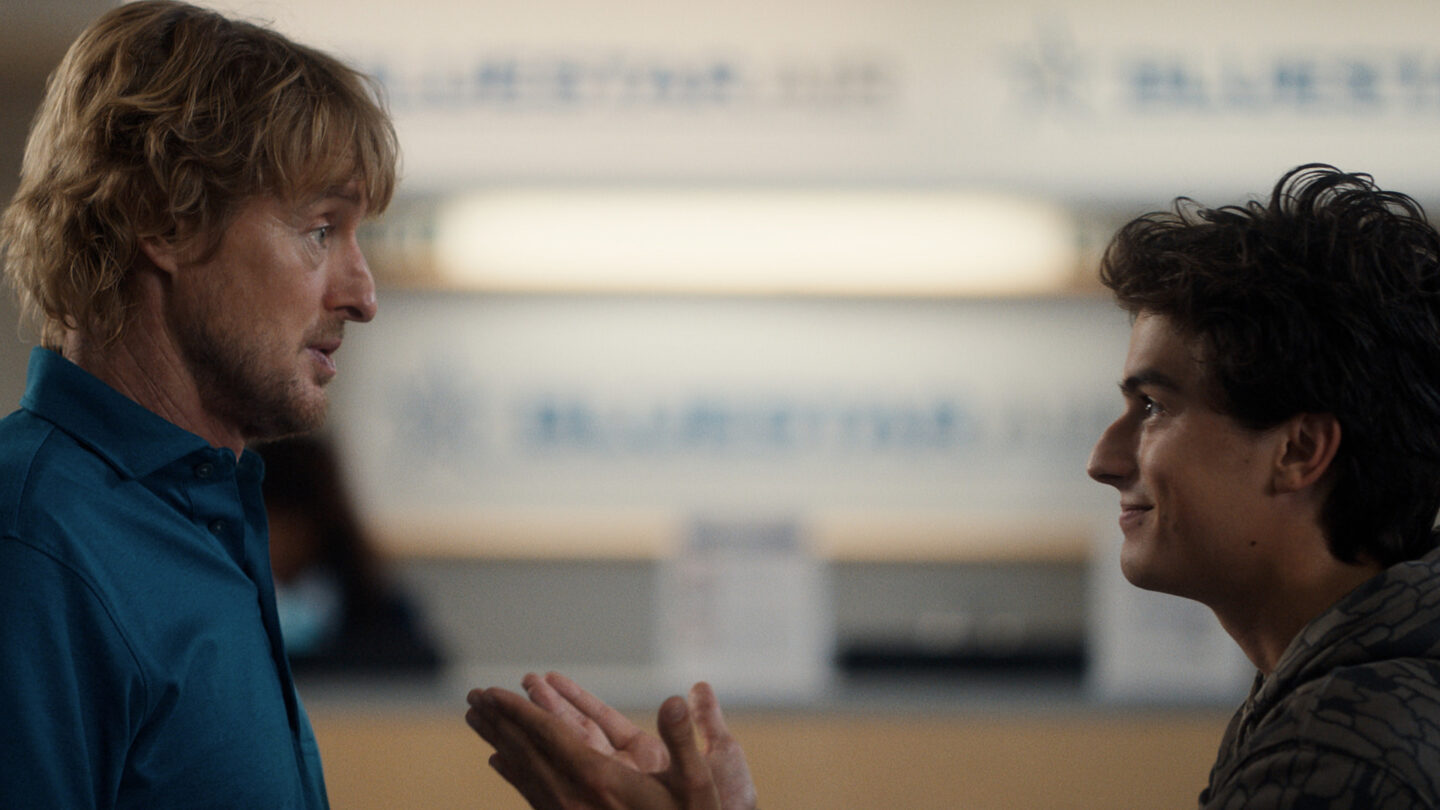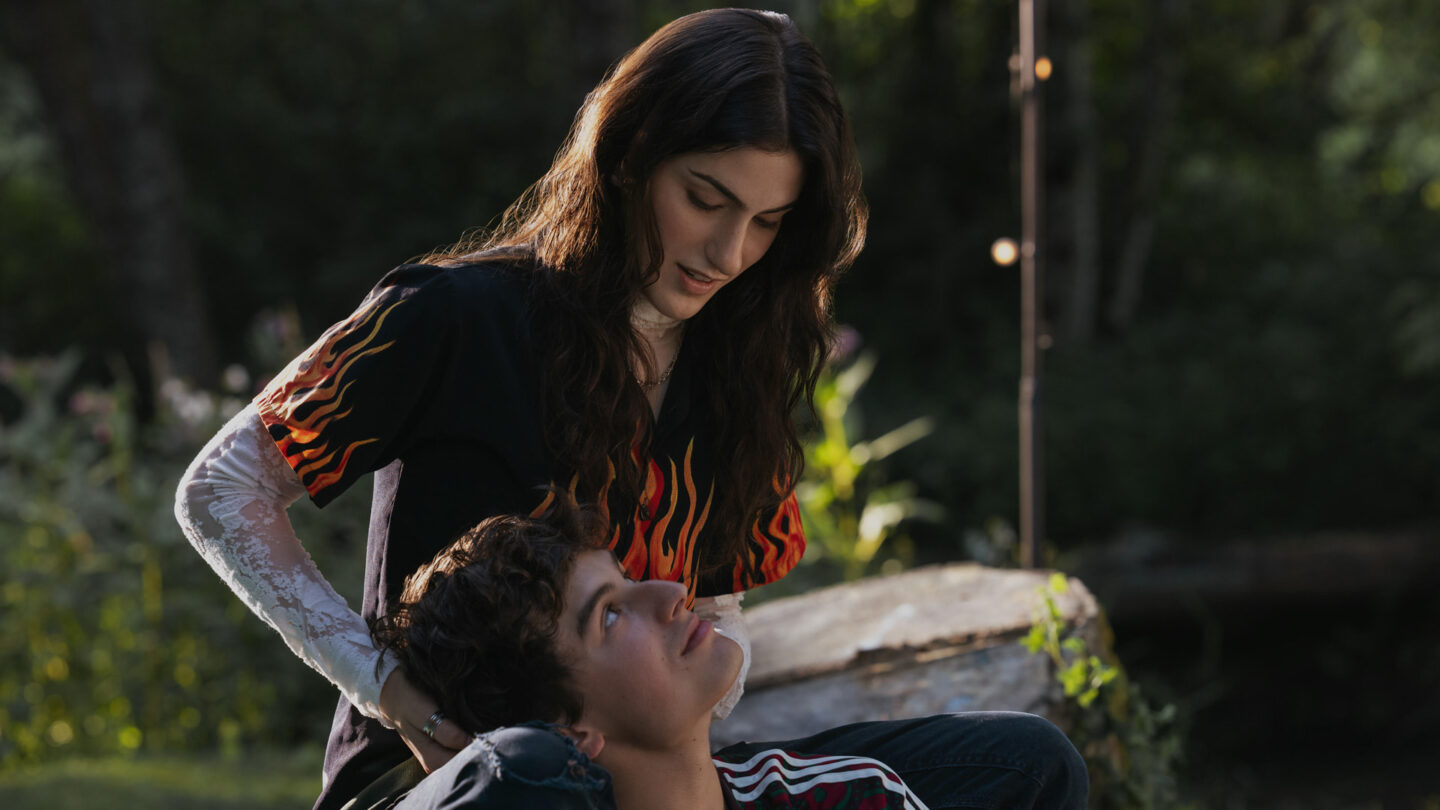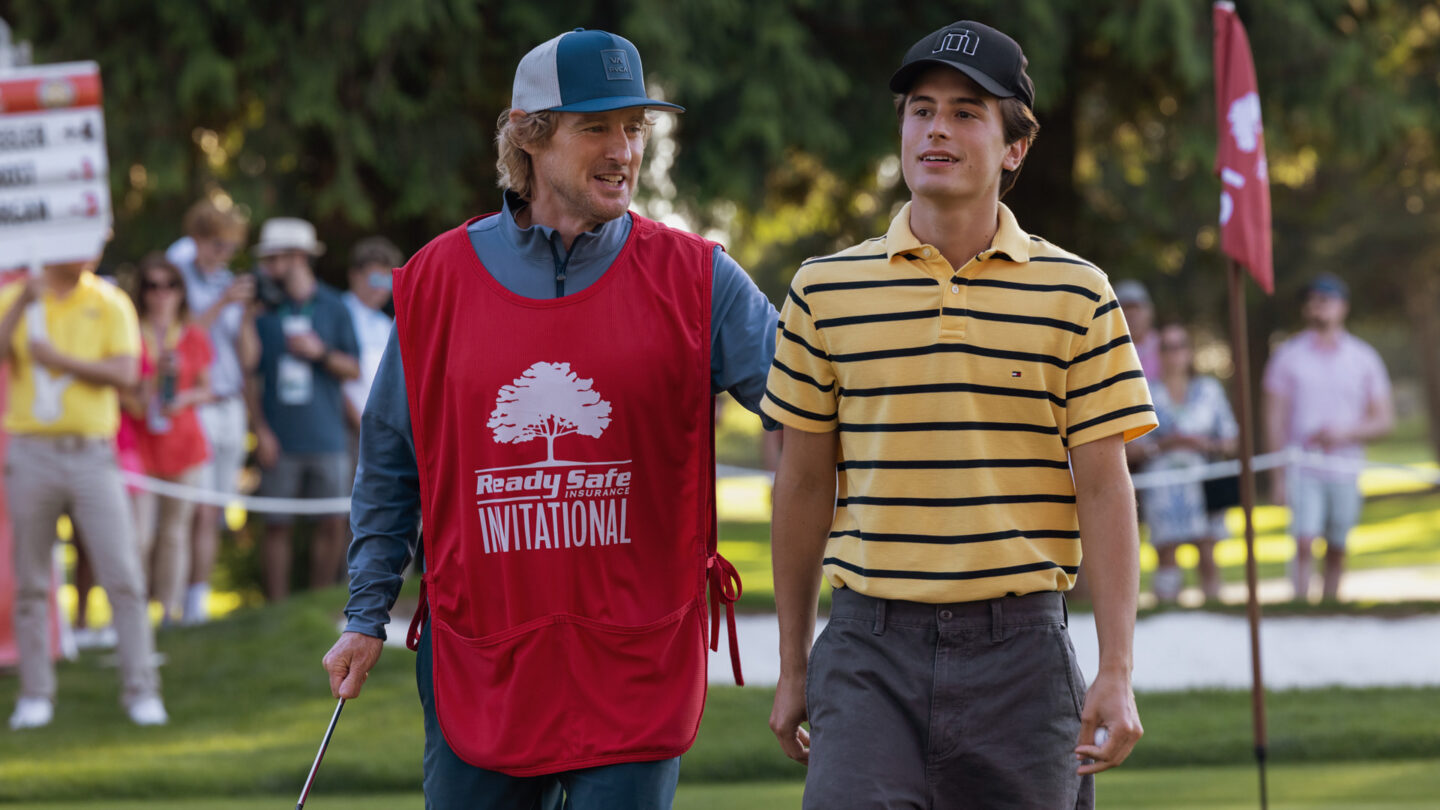Popular Apple TV+ sports comedy Stick just completed its first season and got its green light for season two. So while comparisons to feel-good soccer phenom Ted Lasso seem inevitable, this Owen Wilson-led golf series carves out its own distinctive identity.
Rather than trying to replicate the wholesome optimism and wildly unbelievable story that made Ted Lasso a cultural phenomenon, Stick takes viewers slightly further into somewhat darker territory and into a slightly more believable story with suburban grift, sardonic humor and complex characters navigating grief and redemption.
Hey, I said somewhat darker, slightly further and slightly more believable, OK?
In a nutshell, Stick, like Lasso, is danged wholesome and all about redemption. And both series are feel-good shows people want to watch right now, given the societal circumstances. But for my Apple TV+ Stick review, here are three compelling reasons why Stick deserves your attention, regardless of how you feel about its more famous predecessor.
Apple TV+ Stick review: 3 reasons to watch
Hit Apple TV+ comedy Stick, just greenlit for season 2 as smash-hit Ted Lasso heads for season 4, follows Wilson as Pryce “Stick” Cahill, a washed-up former professional golfer with prodigious talents who blew out his career with one mega-tantrum on national TV. Now, after years of Wilson-esque soul-seeking and start-and-stop failure, he seeks redemption by coaching talented young amateur Santi Wheeler (Peter Dager). Screenwriter and showrunner Jason Keller said his relationship with his father, a golfer, partly apparently inspired the story.
The series weaves in well-wrought-tiresome suburban elements as characters navigate the affluent world of country club life. The storylines weave into a narrative that’s thoughtful in its exploration of mental health and personal struggles. Of course, it uses golf as a metaphor for how people navigate troubling times. On this show, a 4 iron can be incredibly aggressive, smothering the voice of the lowly sand wedge. That’s life.
1. Owen Wilson delivers his most vulnerable performance

Photo: Apple TV+
Wilson’s casting as “Stick” Cahill becomes one of Stick‘s strongest assets. It showcases a more emotionally complex side of the actor than audiences typically see. Known for his laid-back comedic persona, Wilson brings genuine vulnerability to this former golfer who’s still grieving his young son’s death while navigating a divorce from his wife (Judy Greer).
What makes Wilson’s performance particularly engaging is how he balances his natural charm with raw emotional pain. Unlike Ted Lasso‘s consistently upbeat protagonist, Pryce is a character dealing with profound loss in a sloppier way as he tries to find purpose through mentoring young Santi Wheeler. Wilson centers on Zen but constantly loses it.
The supporting ensemble creates compelling dynamics around Wilson’s central performance. Dager plays talented teen Wheeler, while Mariana Treviño brings depth as his protective mother Elena. Marc Maron appears as Mitts, Pryce’s former caddy and friend, adding his signature sardonic, curmudgeonly wit to the mix. And Lilli Kay rounds out the core cast as Zero, a non-binary country club worker who becomes Santi’s love interest.
The show incorporates real golf professionals like Collin Morikawa, Keegan Bradley, Max Homa and Wyndham Clark, alongside broadcasters Jim Nantz and Trevor Immelman. That grounds the fictional narrative in authentic sports culture.
Most notably, Timothy Olyphant delivers a stellar guest performance across five episodes as Clark Ross. He’s the successful golfer partly responsible for Pryce’s downfall. His character’s story adds layers of tension and complexity to Wilson’s character arc. Olyphant, a huge star from Justified and more, pretty much chews the scenery with his oily charm.
2. A refreshingly dark take on found family and redemption

Photo: Apple TV+
Where Ted Lasso radiates sunshine and folksy wisdom, Stick deliberately ventures into murkier emotional territory. The show’s exploration of grief, mental health and personal failure feels more jagged and realistic than Lasso‘s inspirational messaging. This isn’t a criticism of either approach. Rather, it highlights how Stick serves a different audience seeking more complex emotional narrative to go with its sports and its laughs.
The golf setting works well as a metaphor for life’s accumulated mistakes. As one critic noted, golf is a sport “where all your mistakes can compound.” That reflects how Pryce, Santi and their friends move through their respective crises. Unlike soccer’s team-oriented message in Ted Lasso, golf’s individual nature emphasizes personal responsibility and the horrible weight of past decisions.
Stick‘s seventh episode received particular critical acclaim for its emotional rawness. It features a dream sequence where Pryce imagines moments he missed with his deceased son. Critics called it “utterly beautiful” and “emotionally raw,” with one noting that this single episode “made watching the first six episodes worth it.” These moments of genuine vulnerability elevate the show beyond simple comedy into something a bit more profound. It takes you by surprise in a good way.
The series doesn’t shy away from heavy themes — gambling problems, divorce, death and suburban ennui all factor into the narrative. Yet rather than wallowing in misery, Stick finds humor in the absurdity of middle-aged men trying to rebuild their lives while making increasingly poor choices. It’s the kind of show that appeals to viewers who appreciate character studies with sharp edges and moral ambiguity.
3. Golf brings unbearable pressure

Photo: Apple TV+
Perhaps most importantly, Stick distinguishes itself through genre blending that feels both unexpected and natural. The golf course dramedy creates a unique viewing experience that stands apart from typical sports-centered narratives.
Unlike Ted Lasso‘s straightforward inspirational arc, Stick operates more like a character-driven dramedy. The pacing moves differently, with tension building through personal relationships rather than sports achievements. Ted Lasso uses soccer as a backdrop for lessons about teamwork and positivity. Stick uses golf to explore themes of isolation, precision under pressure and the psychological weight of individual performance.
Like Lasso, Stick’s typically 30-minute episode format keeps things moving at a brisk pace. It never overstays its welcome, yet allows time for character development. If anything, many episodes feel too short. With 10 episodes in its first season, Stick feels like an effortless watch that rewards viewers looking for something more sophisticated than typical network comedy but lighter than prestige drama.
Critics have noted that while Stick may not always match the emotional resonance or writing depth of Ted Lasso, it succeeds as an enjoyable character study that offers genuine moments of insight and humor. The show earned a 82% approval rating on Rotten Tomatoes from critics (71% from fans) and a “Generally Favorable” score of 62 on Metacritic — a solid if not spectacular reception.
Apple TV+ Stick review verdict: No Ted Lasso, but it doesn’t need to be
Stick works best when viewed on its own terms rather than as Ted Lasso‘s spiritual successor. While both shows share Apple TV+’s commitment to quality production and character-driven storytelling, they occupy different emotional territories. Ted Lasso bathed viewers in sunshine and optimism; Stick navigates shadows with occasional bursts of light.
For anyone interested in Owen Wilson’s most emotionally complex performance, dark comedy with genuine emotional stakes, or simply something different, Stick offers a compelling alternative. It may not become the cultural phenomenon that Ted Lasso achieved, but it carves out its own worthy space in Apple TV+’s growing catalog of original content.
Watch Stick on Apple TV+
While you wait for Stick season two, you can watch season one on Apple TV+. Get the service by subscription for $9.99 with a seven-day free trial. You can also get it via any tier of the Apple One subscription bundle. Customers who buy a new iPhone, iPad, Apple TV, Mac or iPod touch can enjoy three months of Apple TV+ for free.
After launching in November 2019, “Apple TV+ became the first all-original streaming service to launch around the world, and has premiered more original hits and received more award recognitions faster than any other streaming service. To date, Apple Original films, documentaries and series have been honored with 471 wins and 2,090 award nominations and counting,” the service said.
More than 200 exclusive movies and TV shows call Apple TV+ home (including breakout soccer comedy Ted Lasso). The service also offers documentaries, dramas, comedies, kids shows and more.


